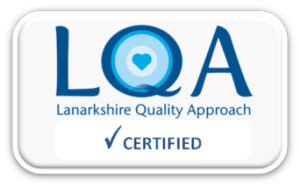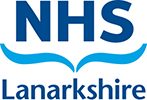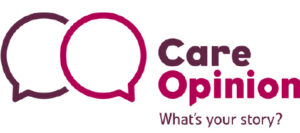Nutrition For Wound Healing
Information for patients
NHS Lanarkshire Nutrition and Dietetic Department
PIL.WONDHL.18_01515.L
Good nutrition for wound healing
We are what we eat! We heal from the inside and need a variety of nutrients to help form new skin. Generally, the better nourished you are the quicker you will heal.
A diet high in energy, protein, vitamins and minerals with an adequate fluid intake is necessary for wound healing. This leaflet is designed to give you practical tips to ensure you get all the nourishment you need to help your wound to heal.
Energy
It is important you get enough energy from your food to allow protein to be used in the wound healing process.
Foods high in energy
| Starchy Foods | Fatty & Sugary Foods |
| Bread | Butter, Margarine Cream |
| Rice | Biscuits, Cakes and confectionery |
| Pasta | Sweetened drinks |
| Potatoes | Sugar |
| Breakfast cereals |
Starchy foods provide useful vitamins and minerals as well as energy.
Protein
Protein is needed during all stages of wound healing and therefore an increase in dietary intake is recommended at this time.
Foods high in protein
Meat, fish, poultry, eggs, cheese, pulses vegetables, nuts and Quorn – have at least 2 servings of these foods every day.
One serving =
- 55g – 85g meat
- 115g – 145g fish
- 1-2 eggs or 3 tablespoons
- beans or 55g – 85g cheese
Milk – aim for at least one pint of full cream milk each day. Try fortifying milk by adding dried milk powder. Add four tablespoons of dried milk powder to one pint of full cream milk.
The fortified milk can be used for:
- Milky drinks, e.g. Horlicks, Ovaltine, coffee, drinking chocolate, milkshakes
- Puddings, e.g. custard, creamed rice
- Sauces, sweet and savoury
- Breakfast cereals and porridge
Vitamins and minerals
The whole range of vitamins and minerals are essential for good health. In particular, Vitamin C, Iron and Zinc are important for wound healing.
Vitamin C
Vitamin C is needed for the formation of new tissue, which allows the wound to heal over.
Foods high in vitamin C: Citrus fruits such as oranges, grapefruit, blackcurrant drinks, fruit and vegetable juices, tomatoes, green leafy vegetables and potatoes.
Iron
Iron is needed for blood to carry oxygen around the body and a good supply of oxygen is required for wound healing. Vitamin C helps the body to absorb iron. If you are taking iron supplements fruit juice will help your body absorb more of it.
Foods high in Iron: Red meat, offal; liver, kidney and pate made from these. Oily fish, eggs, lentils, beans, green leafy vegetables, fortified breakfast cereals, some dried fruit such as apricots and raisins
Zinc
Zinc is needed for many processes involved in wound healing.
Foods high in zinc: Meat, offal, wholegrain bread and cereals, lentils and beans.
Following a balanced, varied diet should ensure you have enough vitamins and minerals for wound healing. If your appetite or dietary intake are poor you may need to take a multivitamin/mineral supplement, these can be bought at any supermarket or pharmacy.
Please seek advice from a GP or Pharmacist.
Fluid
Fluid is needed to transport nutrients around the body. Insufficient fluid will lead to dehydration.
As fluid is lost through some wounds, you may need to drink more to make up for this. Aim to drink at least eight cups of fluid each day.
If you require extra nourishment for wound healing but have a poor appetite, try to have small frequent meals and snacks throughout the day with plenty of milk and milky drinks.
You might find it useful to top up your intake with over the counter nutritional supplement drinks e.g. Meritene or Complan. Try to take these after food, or in the evening, so they are extra and not replacing food. You can buy these from the supermarket or your local pharmacy.
If you are not able to walk on your foot after seven days you should contact:
Emergency Department
- University Hospital Hairmyres – 01355 584716
- University Hospital Monklands – 01236 712191
- University Hospital Wishaw – 01698 366630
- NHS 24 – 111
Pub. date: April 2022
Review date: April 2024
Issue No: 04
Reference: PIL.WONDHL.18_01515.L
22_07316
If you need this information in another language or format, please e-mail:




